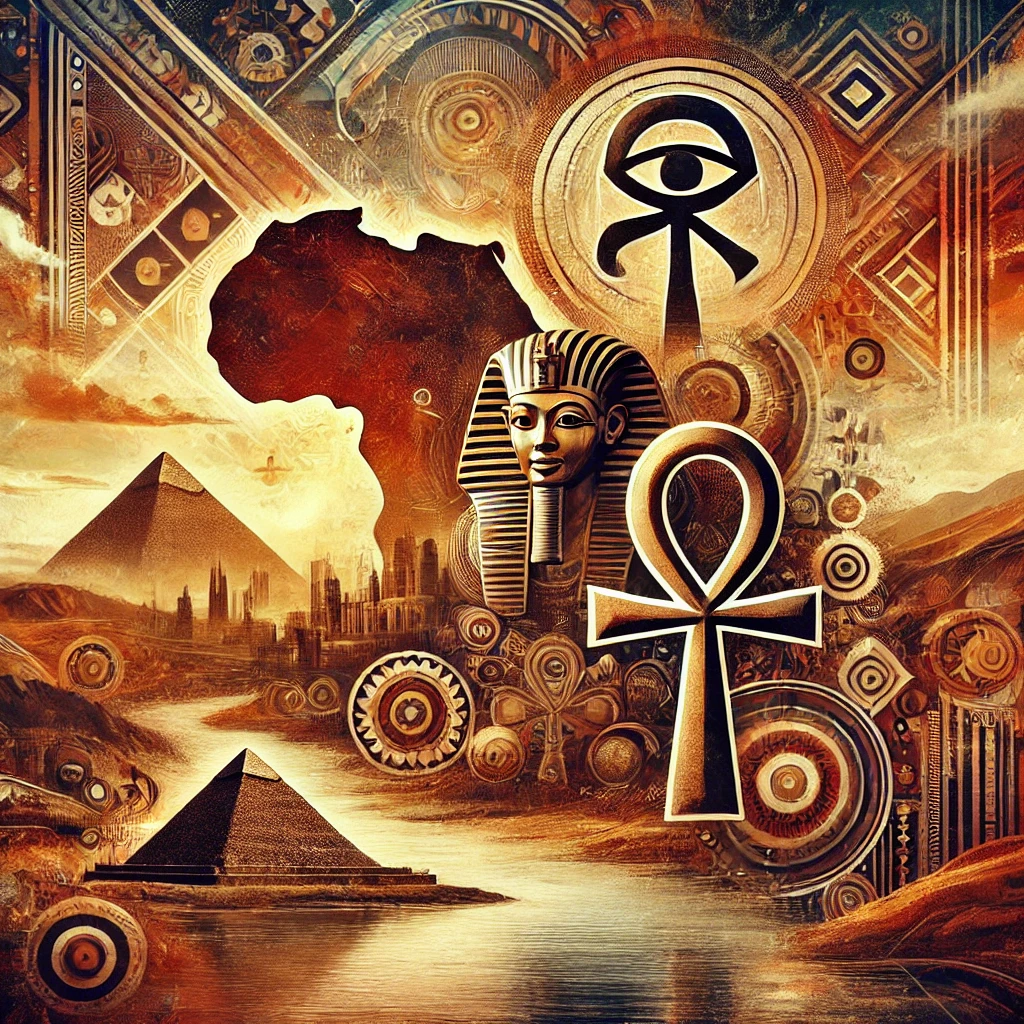By Lamac Ayella (2023).
Who Are we?
For centuries, our true ethnic identity has remained shrouded in ambiguity. Today, many of us identify with names such as “Luo,” “Lwoo,” “Luuo,” or “Lhuo,” variations that emerged from colonial-era narratives shaped by European scholars. But have we ever questioned the origins of these names? Who named us, and why were critical facts about our history omitted from scholarly discourse?
This distortion of our identity is a grave injustice. It is time to challenge the Eurocentric historical framework that has influenced our self-perception and reclaim our authentic heritage. The systematic misrepresentation of our history was part of a broader agenda aimed at suppressing indigenous African knowledge and culture, making us appear subordinate in the global narrative of civilization.
The Luo: Survivors of an Ancient Civilization
After World War II, renowned Egyptologist Henri Frankfort suggested that certain African communities today can trace their ancestry directly to ancient Egypt. Later, at a symposium on the peopling of ancient Egypt, scholar Cheikh Anta Diop reinforced this assertion by comparing the languages of ancient Egypt with those of contemporary African tribes.
Their findings suggest that the language of the ancient Egyptians closely resembles that spoken by the Nilotic people, now widely known as the Luo (or Lwoo).
According to historical accounts, the Luo played a fundamental role in the foundation of the ancient Kushite (Cushitic) kingdom at Napata. This kingdom, deeply rooted in African heritage, was among the early cradles of civilization.
One of the most compelling aspects of this research is the Luo people’s allegiance to Anu, their deity. This connection is evident in the term Itiyo-pi-anu, which references the original settlers and architects of ancient Itiyo-pi-anu (Ethiopia) and Egypt. The acknowledgment of Anu strengthens the argument that the Luo contributed to establishing these great civilizations.
The Impact of Colonialism on African Identity
During the 19th century, European imperialism and colonialism aggressively imposed a “civilization vs. barbarism” narrative to justify their control over Africa. Colonial curricula and anthropological distortions further alienated Africans from their rich historical roots, creating a Eurocentric perception of civilization.
Despite these setbacks, African scholars such as Cheikh Anta Diop took the lead in reclaiming African history. In his seminal work The African Origin of Civilization: Myth or Reality, Diop advocated for a linguistic approach to tracing black African history back to ancient Egypt. His contributions, along with those of other scholars, have been crucial in uncovering the African origins of civilization.
Rediscovering the True Luo Identity
Extensive research has shown that the Luo people, whose ancestry can be traced across East and Central Africa, are part of a vast ethnic lineage that once flourished in the ancient world. Reverend Father J.P. Crazzolara (1938), in his study of the Acholi language, identified several subgroups of the Luo scattered across Africa:
Boor
Jo-Luo (Thuri Bwodho, Jur)
Collo (Shilluk)
Anywaa
Paari (Lokooro Ber, Nyorro)
Acholi
Alur
Jo-Pawir (Jur)
Lango
Kumam
Jo-Pa-Wiir (Jo-Weer)
Jo-Pa-Adhola
Jo-Lwo
Barabaig
The question remains: What does it truly mean to be Luo or Lwoo? By reclaiming our history and challenging colonial distortions, we can restore our rightful place in the narrative of human civilization.
Conclusion
The time has come to rewrite history—not from a Eurocentric perspective, but from an African viewpoint. The evidence is clear: the Luo people are not merely a scattered ethnic group but the descendants of one of the world’s greatest civilizations. We must take pride in our origins, preserve our heritage, and educate future generations about our profound contributions to global history.


2 Responses
Authenticity of this extract has erased the corrupted history about the Luo migration thar I learnt during my elementary level .Thank you guys.
I am in agreement with this. The luo peoples now scattered in Sub Saharan Africa originally lived in Egypt, and are descendants of Ham through Mizraim. They created the great kingdoms of Egypt, Cush and Sheba. It was the violence associated with the spread of Islam that pushed them southwards into the Bar el Ghazal region of present day Sudan – the so called Cradleland of the Luo. I am intrigued by the name “Itiyo pi anu” (Ethiopia).